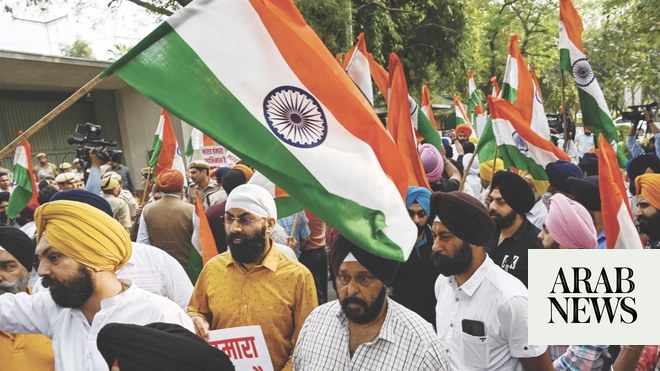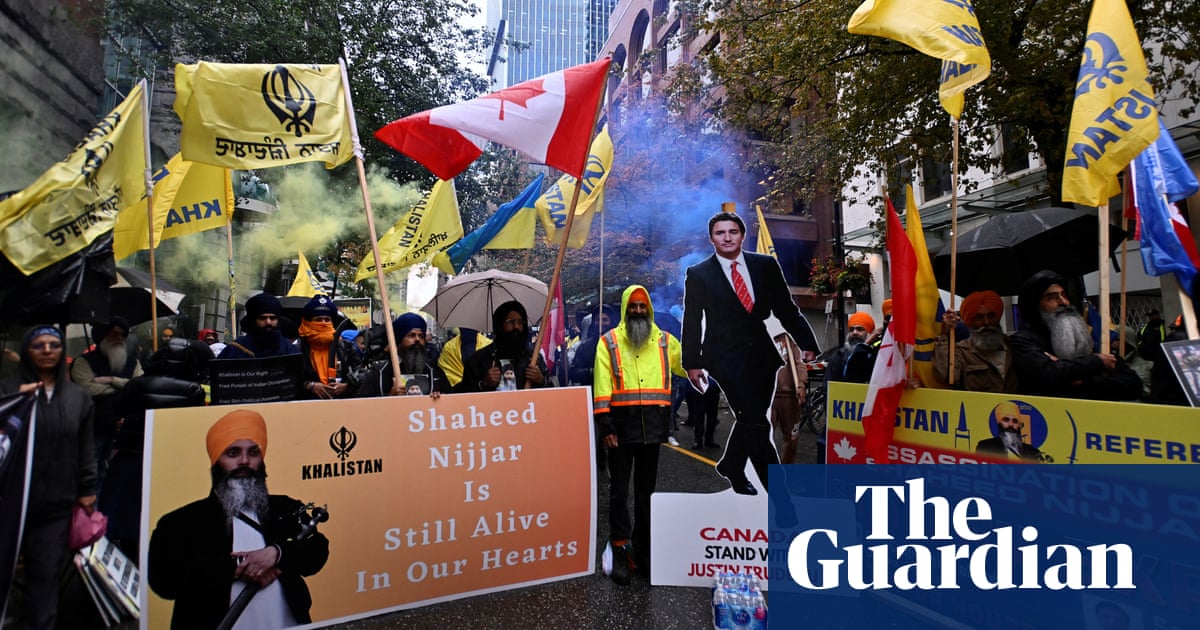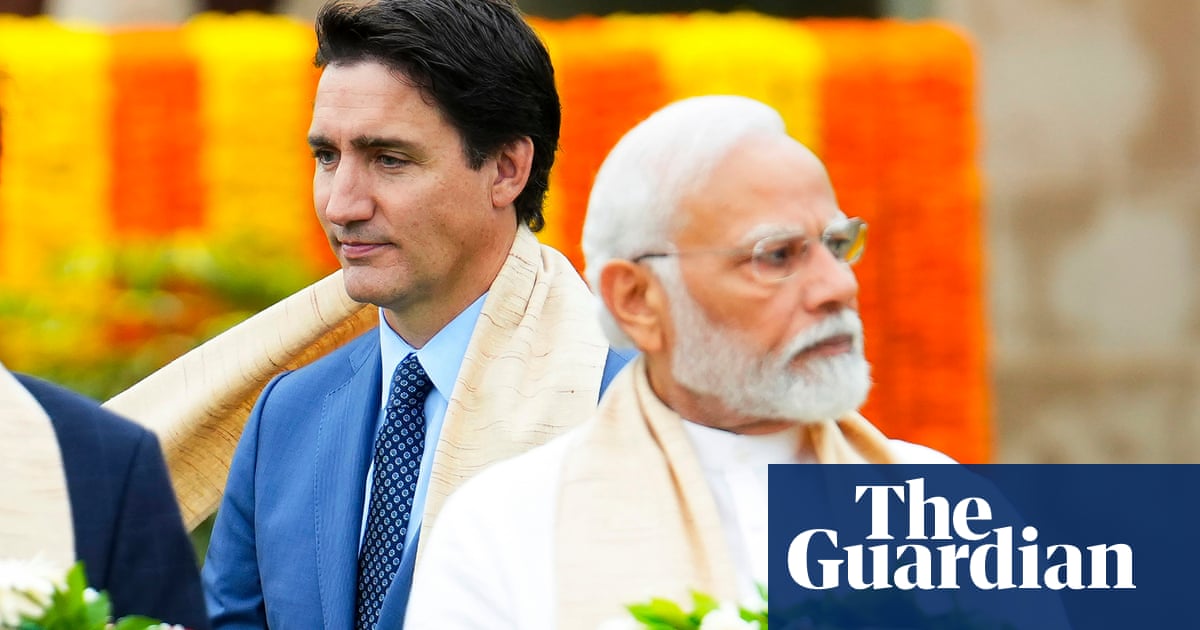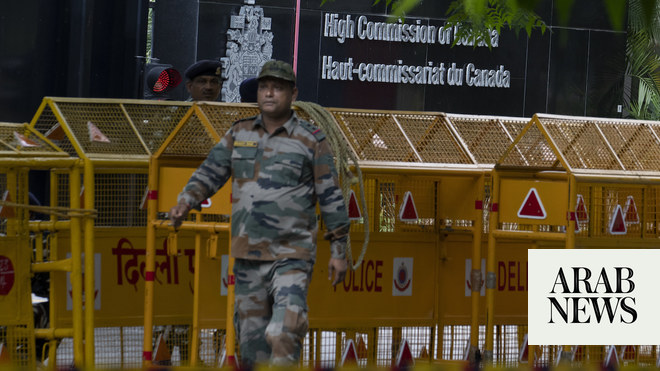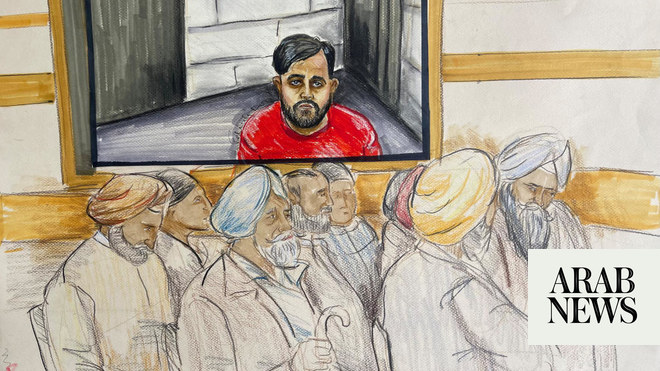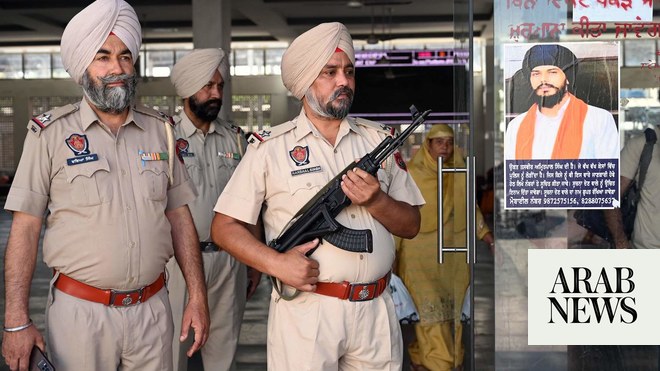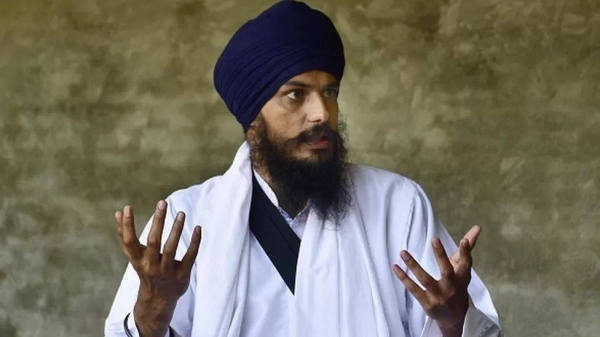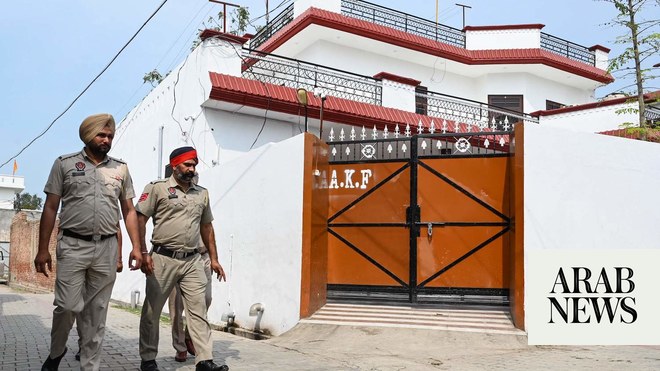
Mobile internet, SMS services will be suspended until Monday noon, Punjab government says
Police say 7 people arrested, illegal weapons seized, as part of the major crackdown
NEW DELHI: Mobile internet services in the Indian state of Punjab will be suspended until Monday as police pursue Amritpal Singh, the leader of a Sikh separatist movement in the Hindu-majority country.
A controversial, self-styled preacher, Singh is the leader of Waris Punjab De, or Heirs of Punjab, who has publicly supported the Khalistan movement for a separate homeland for the Sikhs, a minority community comprising about 1.7 percent of India’s 1.4 billion population.
The suspension of mobile internet and SMS services will continue until noon on Monday, according to an order issued by the Punjab government, “to prevent any incitement to violence and any disturbance of peace and public order.”
Police in the Punjab city of Amritsar said members of the organization have been named in a first information report, which authorities typically use to launch an official investigation.
“Last night a FIR under (the) Arms Act has been registered against them, and Amritpal Singh is the main accused in the FIR,” Satinder Singh, senior superintendent of Amritsar police, told reporters on Sunday.
Amritsar authorities also seized six illegal weapons, he added.
More than 70 people were arrested in the “mega crackdown,” according to a tweet posted by the police in Punjab, where Sikhism is the dominant religion.
The crackdown comes after Amritpal Singh and his supporters broke into a police station with swords and guns last month, demanding the release of one of his aides.
With six police officers injured in the clash, and the Punjab government drawing flak for the security lapse, the incident brought Singh to national attention.
Singh’s supporters have reportedly compared him to Jarnail Singh Bhindranwale, a militant leader of the Khalistan movement that peaked in the 1980s, who was eventually killed in a military operation in 1984.
Thousands of people died during that violent period in Punjab’s history, which also led to the assassination of India’s then-prime minister, Indira Gandhi, by two Sikh security guards, which in turn sparked anti-Sikh riots in Delhi and elsewhere that left several thousand more dead and injured.
In the decades since, the separatist movement has lost a lot of support.
“It’s truly bewildering how Amritpal was allowed to gain so much prominence in a short time,” Sanjay Kapoor, chief editor of the political magazine Hard News and former secretary-general of the Editors Guild of India, told Arab News.
“As he was breathing so much fire, one wonders why the local or central agencies didn’t pick him up,” he said. “What’s further intriguing is how he managed to sneak himself into the Khalistani narrative with little background of struggle or even pedigree. Not too long back he was in Dubai and not even wearing a turban.”
Not much is known about Singh’s early years, though he reportedly moved to Dubai in 2012 to join his family’s transport business. Last August, he returned to India looking visibly different from old photos, appearing as a devout, practicing Sikh, and was appointed head of Waris Punjab De about a month later, in a ceremony attended by thousands of people.
“That’s the reason why any skeptics believe that Amritpal represented a diabolical plan to polarize the Hindus against the Khalistani threat before the 2024 elections,” Kapoor said.
Ronki Ram, a professor at Panjab University’s department of political science, said the government was responsible for propelling Amritpal Singh to fame.
“Amritpal Singh has been given lots of space by the government. In a short time, he got a larger-than-life image,” Ram told Arab News.
“By doing this massive crackdown against Amritpal Singh, they are making him more popular. There are so many organizations behind him, that also shows the gravity of the situation in Punjab.”
But even as Singh’s popularity grew, Ram said it did not translate to a resurgence of the Khalistan movement.
“Whenever something happens in Punjab, they associate it with Khalistan,” Ram said. “This talk of the Khalistan movement gaining traction is far-fetched.”




